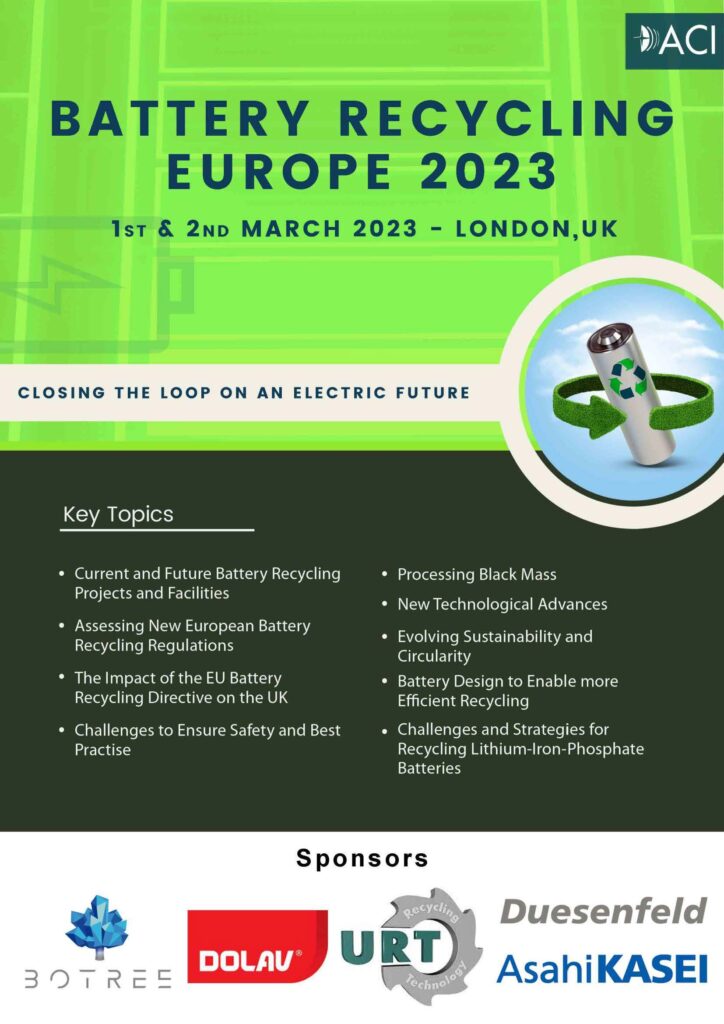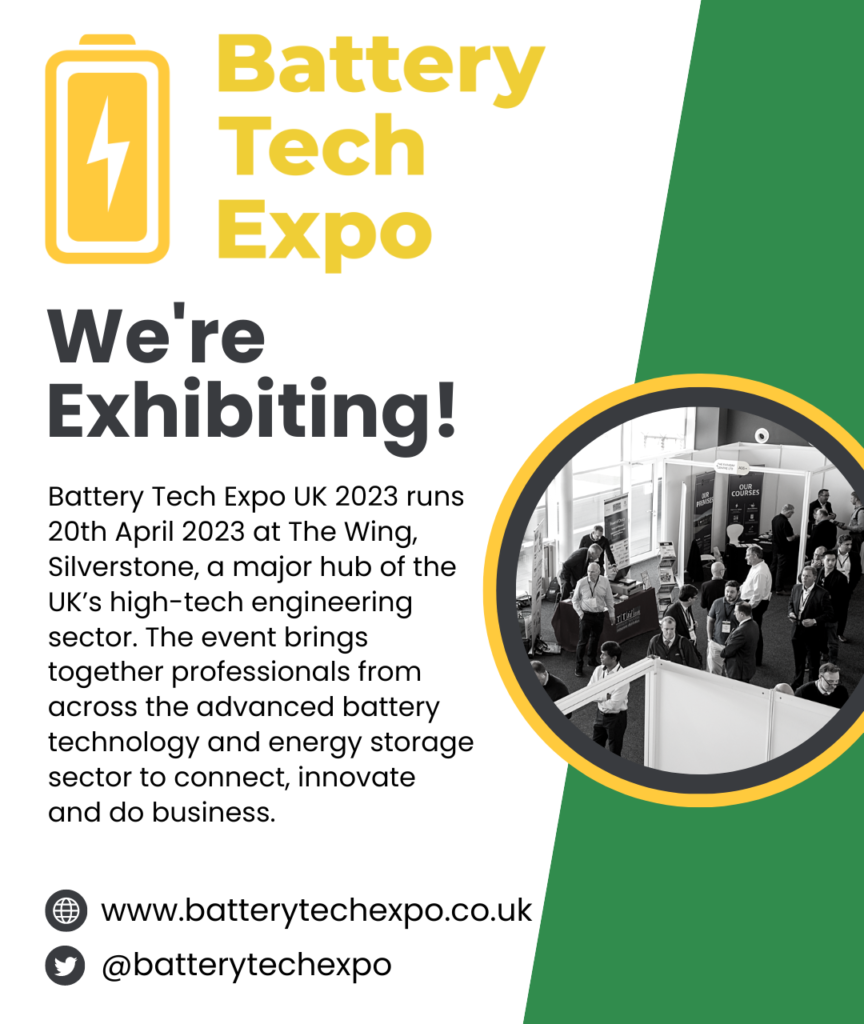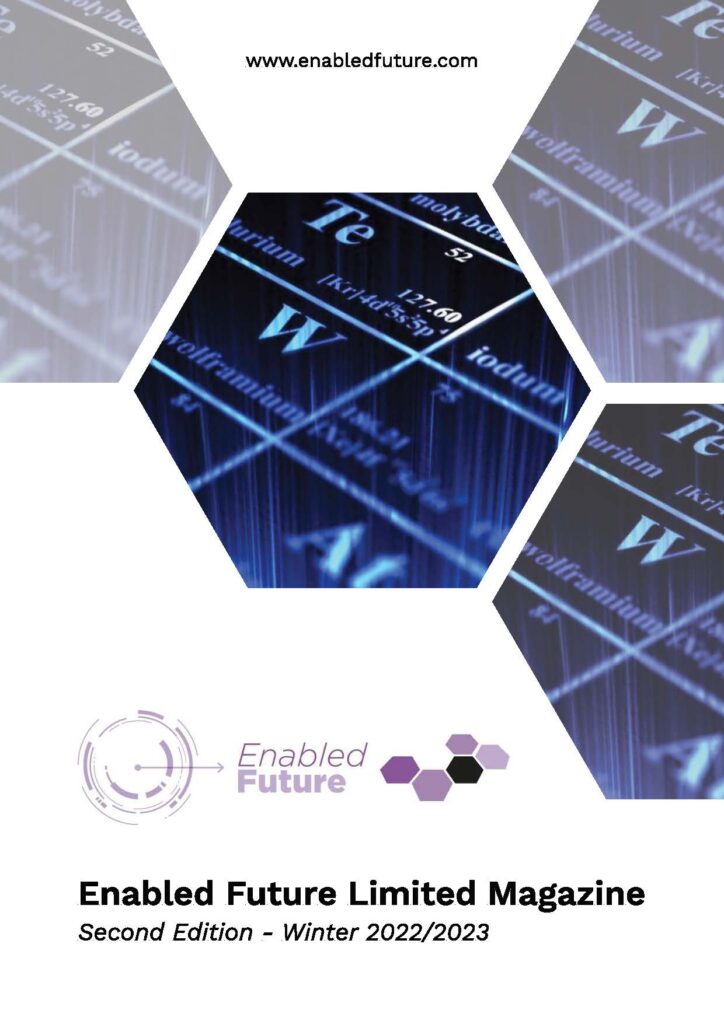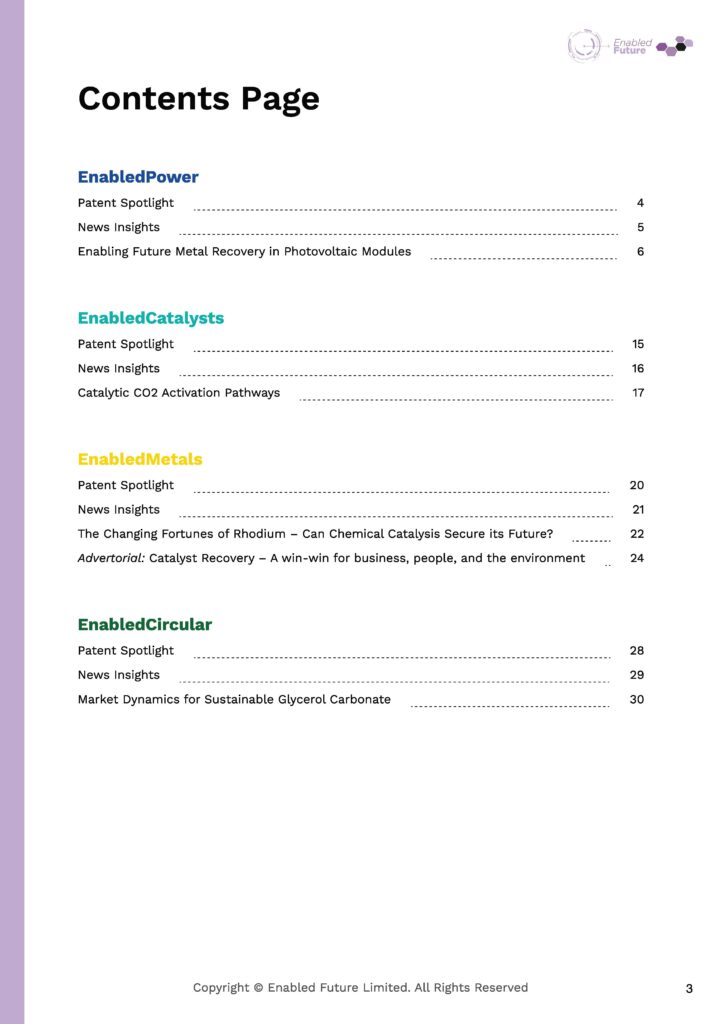Enabled Future Limited CEO to Present at ACI Battery Recycling Europe, London
Enable Future Limited CEO – Dr Michelle Lynch, CChem FRSC – will be presenting at the forthcoming ACI Battery Recycling Europe event in London on 1st-2nd March 2023.
The title of her presentation is “Recycling of Ni and Co Free Batteries”. This important topic will look at the technical processes needed to recycle battery materials which contain little or no nickel including LFP and Mn-rich LNMO. In addition it will consider how recycled materials make their way back into fresh battery cells. The need to meet demand for battery materials in Europe is a key driver for recycling, however there are several barriers to capacity builds. The use of sustainable sources of battery metals such as from mine tailings will also be discussed.
This presentation will take a holistic view of the industry and examine how globalized structures can enable or inhibit circularity in battery production and present ideas for how to move forward with successful battery recycling and circularity projects.
We look forward to seeing you there!



